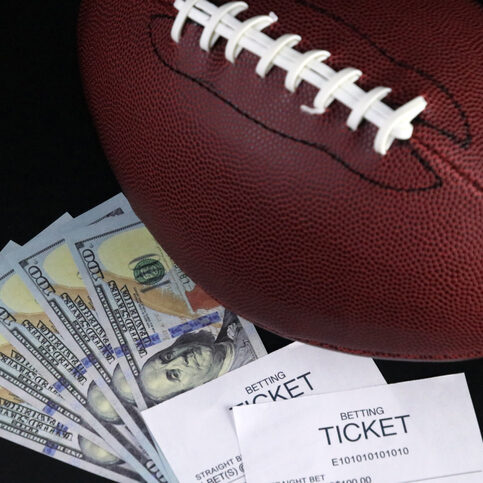Insights < BACK TO ALL INSIGHTS
Six Ways to Delay a Supplier’s Licensure to Service Gaming Operators
Six Ways to Delay a Supplier’s Licensure to Service Gaming Operators
By: Jeffrey Hamlin
Ifrah Law specializes in matters related to sports betting and gaming, so it is no surprise that we have helped many businesses apply for and obtain the credentials they need to service the gaming industry. Because gambling is generally a matter of state law, entities that want to participate in that industry must go through the licensure process in every state in which they want to operate. That means the business must consult each state’s gambling statutes, regulations, and application requirements, complete the application forms for the business entity as well as its key personnel, and compile the supporting documents to be submitted as part of the application package. If the gaming-related activity is to occur on tribal lands, the business must go through a similar process with the relevant tribe’s gaming authority.
Businesses that want to go live in every state where sports betting and casino games are legal must apply in a couple dozen states. According to the American Gaming Association, thirty-eight states and the District of Columbia allow some mix of land-based and online casino gambling and sports betting. Many of our clients entrust us to make sure they get and maintain the gaming credentials they need to do business in these growing markets.
Most of my experience has been with payment services businesses and marketing affiliates, so the potential sources of delay discussed below are most relevant to businesses seeking licensure at the level of a payment processor—that is, an Event Wagering license in Arizona, a vendor-minor license in Colorado, an Online Gaming Service Provider License in Connecticut, and vendor registrations in Indiana, Kansas, Maryland, Massachusetts, Michigan, New Jersey, New York, Tennessee, and Virginia. Maine and West Virginia issue Supplier licenses whereas Pennsylvania issues a Gaming Service Provider Registration and Wyoming a vendor permit.
In our experience, the top six ways to delay licensure at the level of a payment services provider are:
#1: Skipping the Inquiry Form. Failing to submit an inquiry form as a preliminary step in the application process can delay licensure in states like Arizona, Indiana, and Maryland. Each state requires the applicant to submit an inquiry form with information about the applicant’s goods and services, its organizational structure, and individuals with the ability to exercise control over the licensed activity. Staff at the gaming agency review the applicant’s inquiry form and supporting documents to determine whether the proposed activity requires some credential and, if so, which one. Agency staff also identify the individuals associated with the applicant who are deemed to be key personnel and, therefore, required to submit individual disclosures. Applicants who forego this preliminary step risk submitting the wrong application form and individual disclosures for an incorrect or incomplete list of key personnel. Applicants who skip the inquiry form in Arizona and Indiana may be required to complete that step while their application package is under review. Applicants in Maryland cannot begin the application process until regulators there have reviewed and responded to the inquiry form.
EWFS – Inquiry Letter.pdf (az.gov)
IGC Gaming Entity Inquiry: IGC Public (accessgov.com)
Gaming-Related-and-Sports-Wagering-Related-Determination-form.pdf (mdgaming.com)
#2: No Enforceable Agreement With Licensed Operator or Operator-Applicant. In some jurisdictions—Kansas, for example—a vendor-registration applicant may find that its gaming application is on deck to be approved only to find that the registration or other credential cannot issue until the applicant has an executed contract with a Kansas licensee or license applicant. Regulators with the Kansas Racing and Gaming Commission will not issue a registration or other credential to an applicant who meets the relevant criteria unless that applicant submits an enforceable agreement for the provision of goods or services in question. Payment services providers who apply before they have contracted with an operator run the risk that their credential will be held back until the terms of the underlying agreement are hammered out. In cases where the applicant and licensed operator are far apart on final terms, the executed contract may be weeks or months away. As the time to the signed agreement increases, so too does the likelihood that information on file with the regulator will be deemed stale and require extensive updates or re-application.
#3: No Money Transmitter License or Exemption Letter in New Jersey. The New Jersey Department of Gaming Enforcement will not entertain vendor-registration applications from payment services providers unless the applicant shows that it has obtained one of two things from the New Jersey Department of Banking and Insurance (“DOBI”): a valid money transmitter license (“MTL”) or a letter stating that the proposed transactions are exempt from New Jersey’s money transmitter laws. Service providers who do not have (or want to apply for) a money transmitter license should request in writing that DOBI issue an exemption letter for the types of transactions in question. The request should describe the methods of payment to be used—these may include card-not-present transactions, Automated Clearinghouse (“ACH”) transfers, and transfers using Alternative Payment Methods (“APMs”), for example. The request should also describe or depict the flow of information and flow of funds and should include a copy of the provider’s signed agreement with a New Jersey licensee. Generally, DOBI regulators issue exemption letters to service providers who demonstrate that the processing activity is limited to the transfer of payment details using encryption, tokenization, or another comparable security device, and that the provider will not “touch” or hold title to player funds, even for a nanosecond. Some jurisdictions allow unlicensed processors to hold player funds temporarily as an agent of the merchant-payee. In those states, a vendor who processes an ACH transaction, for example, can accept player funds in its account and wait for the transaction to clear before disbursing those funds to the merchant-operator. In these states, the unlicensed processor does not need an MTL because the activity is covered by the agent-of-the-payee exception to the license requirement. New Jersey recognizes no such exception. As such, payment service providers often maintain FBO accounts—so named because the sponsor bank holds legal title to account funds “For the Benefit Of” the merchant pending disbursement to the merchant-operator.
It can take months to get an exemption letter. For that reason, service providers who would like an exemption letter should submit their request to DOBI as early as possible. Providers who do so are more likely to have an exemption letter in hand when they are ready to submit the application for vendor registration to the Division of Gaming Enforcement.
#4: Not Having the Requisite Number of Licenses in Other Jurisdictions. Applicants who plan to seek licensure in multiple jurisdictions will benefit from knowing that the West Virginia Lottery Commission requires applicants to have at least one gaming credential from another state. Applicants who are not registered, certified, or licensed by another gaming authority in the U.S. will not be able to proceed in West Virginia until they are. The rules in Connecticut are slightly different. There, the Department of Consumer Protection’s Gaming Division does not require that applicants be credentialed in other jurisdictions unless the applicant seeks to take advantage of the state’s rules on reciprocity. In Connecticut, online gaming service providers may complete a truncated version of the online application if they invoke in-state or out-of-state reciprocity and complete the full online application within 270 days of receiving the provisional license. To qualify for reciprocity, applicants must have an analogous credential issued by an agency in Connecticut or a comparable gaming credential in at least three other states. Reciprocity is available to corporate applicants as well as their key personnel.
#5: Tax Liens. Gaming regulators in many states including Arizona, Maine, Pennsylvania, Tennessee, and West Virginia run background checks on corporate applicants and their key personnel. The investigative analysts who conduct these checks sometimes come back to the applicant with a list of outstanding tax liens that must be resolved before the license or registration can issue. Usually, the liens are for nonpayment of property taxes or sales-and-use taxes owed by either the applicant or a predecessor in interest. Liens filed by a city, county or municipality must be resolved locally. The applicant may respond by paying the amount due, disputing the tax, or negotiating some type of settlement with the tax authority. Regardless, resolving multiple liens in multiple jurisdictions can take weeks, thereby delaying licensure. Proactive applicants who search the public record for outstanding liens will get a jump on resolving them which will reduce or eliminate any resulting delays.
#6: Licensure by Tribal Gaming Authorities. Finally, applicants who plan to provide goods or services on tribal lands may be surprised to learn that they must be credentialed by the state regulator as well as the tribal regulator. Such is the case in Washington State, where ancillary sports wagering vendors who provide services on lands owned by the Tulalip Tribes must obtain a license from the Washington State Gambling Commission as well as a vendor license from the Tulalip Tribal Gaming Agency, https://www.tulaliptribes-nsn.gov/Dept/TulalipTribalGamingAgency. Because the tribal regulator piggybacks on the Washington State Gambling Commission’s investigations of the applicant and key personnel, the applicant must obtain the state license before applying with the tribal authority.





